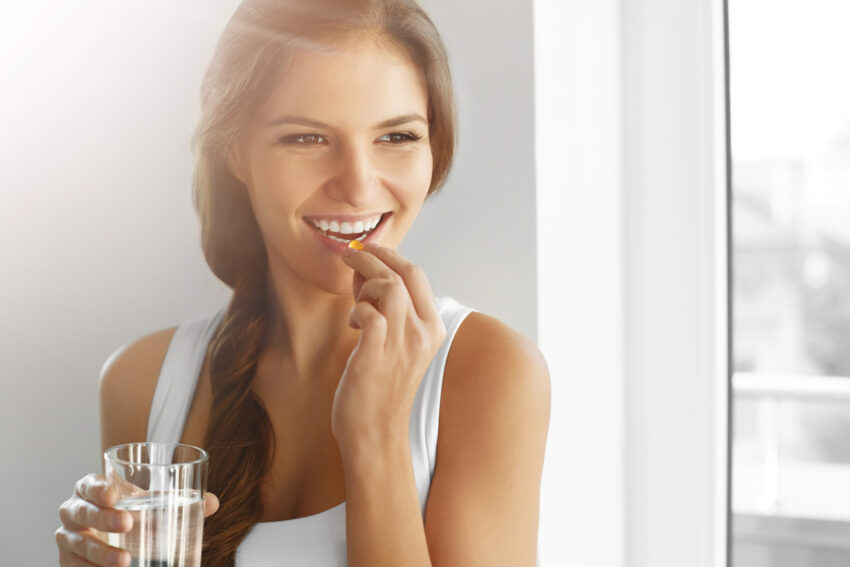The beauty supplement industry has grown exponentially in recent years as more people look for easy and non-invasive ways to enhance their appearance. From supplements promising younger looking skin to others targeting hair and nail growth, there are a wide variety of products available. Let’s take a closer look at some of the major types of beauty supplements on the market today.
Collagen Supplements
Collagen is one of the most popular beauty supplements as it is vital for strong, youthful looking skin. As we age, our natural collagen production slows, which leads to wrinkles and sagging. Collagen supplements, usually containing types I and III collagen, aim to boost collagen levels in the skin. Many brands extract collagen from sources like bovine or fish and claim regular intake can plump fine lines and firm skin. Clinical trials have found some collagen supplements may increase hydration and elasticity when taken orally or applied topically. However, more research is still needed on their long-term anti-aging effects.
Keratin Supplements
Keratin, the key structural protein in nails, hair and skin, is another common active ingredient in Beauty Supplements. Keratin supplements strive to promote strong, shiny nails and hair by supplying the raw materials needed for keratin production. Some may include keratin itself or keratin amino acids like cystine and methionine. Anecdotal user reviews report seeing results like reduced breakage and improved hair volume after regular use. While keratin supplements are generally well-tolerated, there is limited scientific proof of their beautifying abilities at this stage.
Vitamin Supplements
Many multivitamins and targeted formulas contain high doses of certain vitamins said to benefit beauty. For example:
– Biotin (vitamin B7) is a popular nail and hair support vitamin, claimed to make nails harder and hair thicker. Biotin deficiency has been linked to hair loss and nail fragility.
– Vitamin C aids collagen synthesis and is a staple in anti-aging supplements. It may also lighten dark spots when applied topically.
– Vitamin A (beta-carotene) maintains skin tissue and supports cell turnover for clearer skin. Excess intake is not recommended due to toxicity risks.
– B-complex vitamins like folic acid, riboflavin and niacin aid various metabolic processes in skin, hair and nails. Deficiencies can sometimes manifest as skin or hair issues.
While vitamins are fairly low-risk compared to other supplements, claims of specific beauty effects often lack scientific consensus. Achieving optimum levels from diet is preferable to high-dose formulas for most individuals.
Herbal Supplements
Plant extracts offer another avenue for potential beauty benefits. Some commonly used herbal ingredients include:
– Aloe vera gel, known for its soothing and hydrating properties when applied to skin and hair. Some studies show it may accelerate wound healing.
– Green tea, a rich source of antioxidant polyphenols that scavenge free radicals attacking collagen in skin. Limited evidence it can reduce UV damage and sunspots.
– Grapeseed extract, containing antioxidant oligomeric proanthocyanidins, may protect elastin fibers for firmer skin. Needs more validation.
– Ginkgo biloba, a circulatory booster some claim improves microcirculation in skin for a brighter, more youthful appearance. Efficacy as a beauty supplement is unproven.
While traditional herbal remedies have been used for centuries, scientific agreement on their precise mechanisms and measurable results is still evolving. Quality and dosage also vary between supplements.
Omega Supplements
Essential fatty acids like omega-3 and omega-6 are necessary building blocks for healthy skin structure and function. A balanced ratio of the anti-inflammatory omega-3s (EPA and DHA) to pro-inflammatory omega-6s may maintain collagen integrity and reduce inflammation associated with signs of aging. Fish oil and marine lipid supplements rich in EPA/DHA pair well with beauty regimens but should not replace a diet including fatty fish twice weekly for well-rounded support.
Probiotic Supplements
The digestive tract plays an underrated role in holistic health, and new research links probiotic bacteria consumption to reduced inflammation both internally and systemically. Consequently, probiotic supplements endeavor to create beautiful skin from within by balancing gut flora. Some promising early findings tie certain probiotic strains to diminished acne, but their isolated impact on cosmetic outcomes remains speculative. Taking a broad-spectrum probiotic regardless is usually considered anti-aging.
In conclusion, the variety of beauty supplements currently available attest to ongoing quests for non-invasive beauty fixes. While many popular active ingredients demonstrate theoretical skin support in scientific literature, more robust clinical trials are still necessary to verify specific cosmetic claims for most formulations. A balanced diet, stress management and proper skincare will always lay the foundation for radiant health from within. Supplements could potentially synergize such intrinsic practices but are not standalone solutions for defying aging or hiding unhealthy lifestyles. Prospective users are wise to approach bold marketing promises with prudent skepticism until given widespread backing by medical research.

